
By the Brahmaputra ( Vol: 57)
C-NES Newsletter
(For the period July– September 2022)
World Breast Feeding Week by the Boat Clinics
World Alliance for Breastfeeding Action (WABA) is a global network of individuals and organizations dedicated to the protection, promotion and support of breastfeeding worldwide.
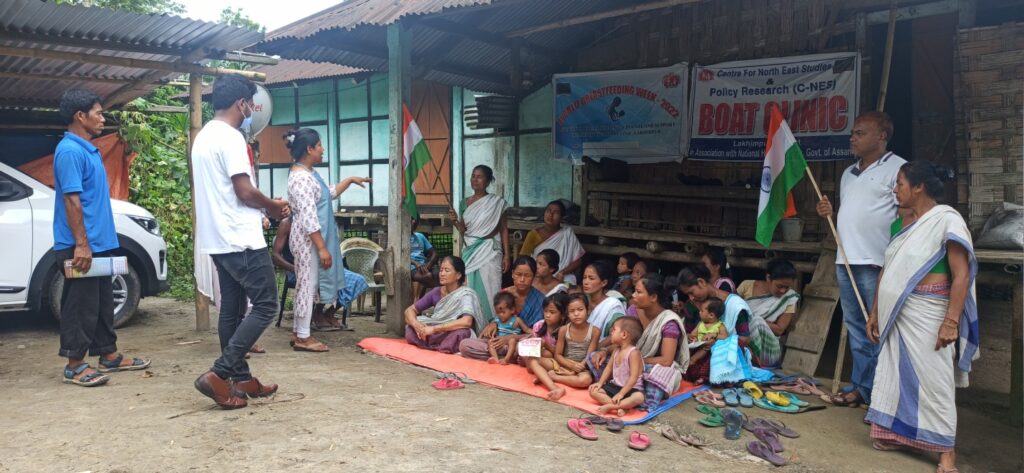
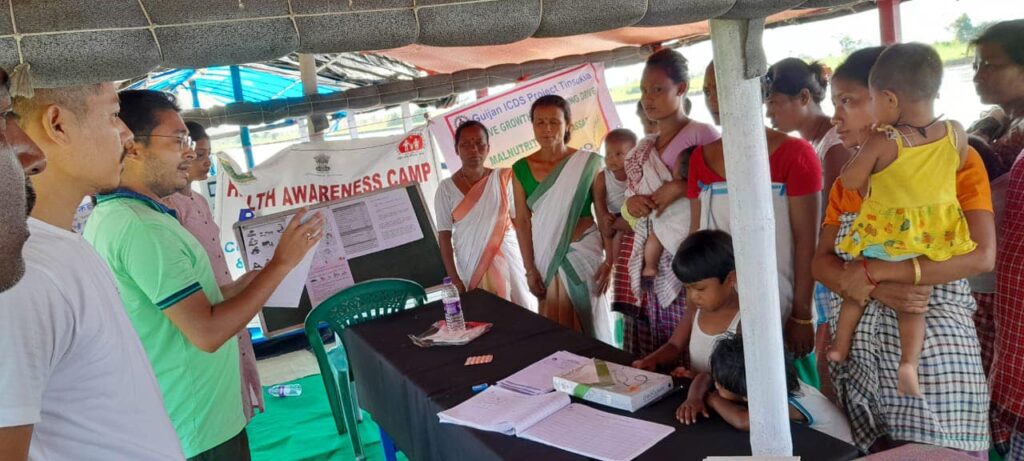

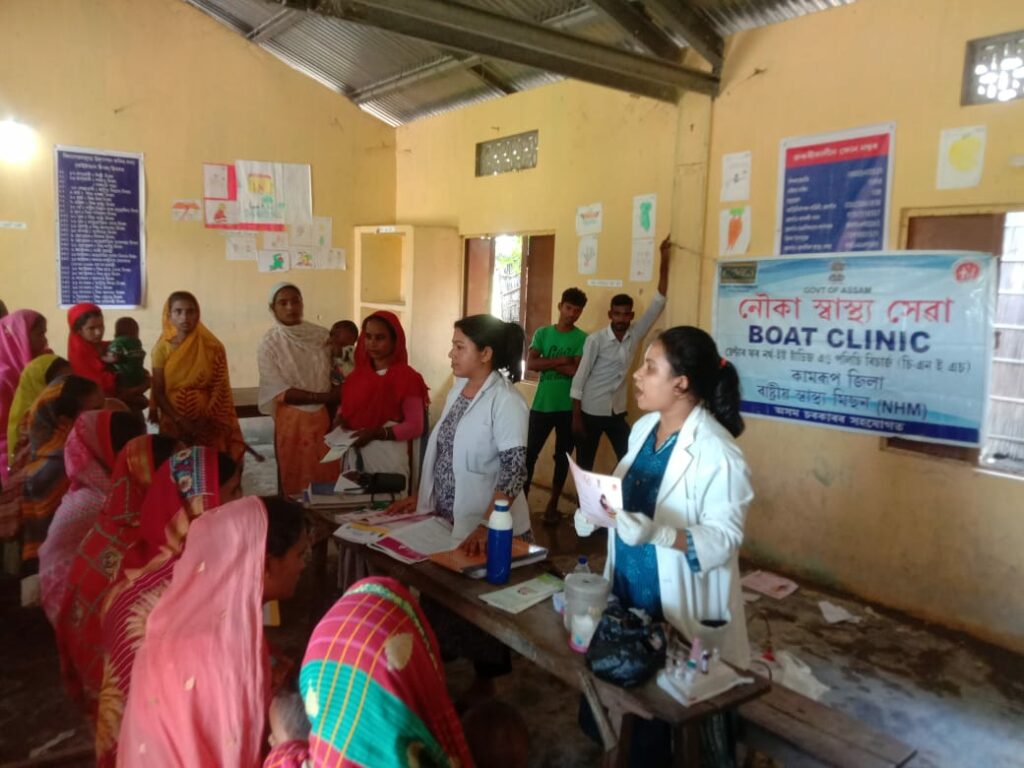

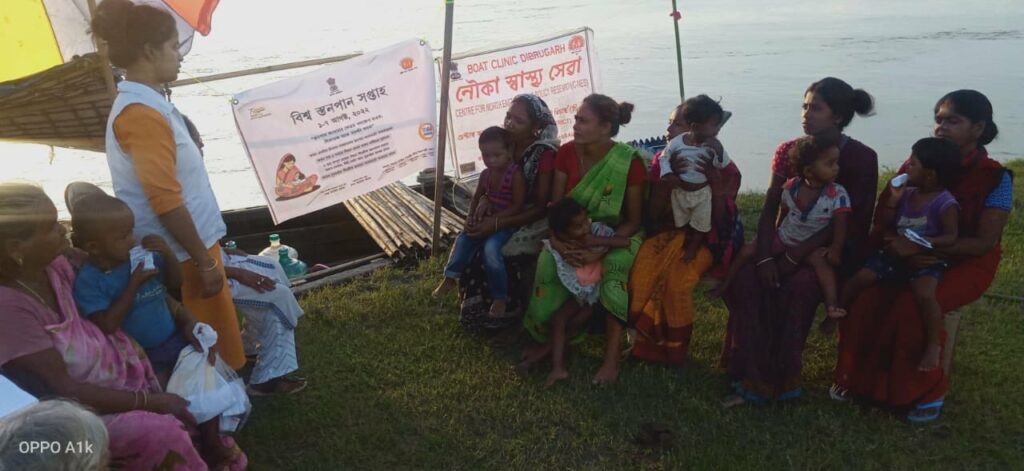

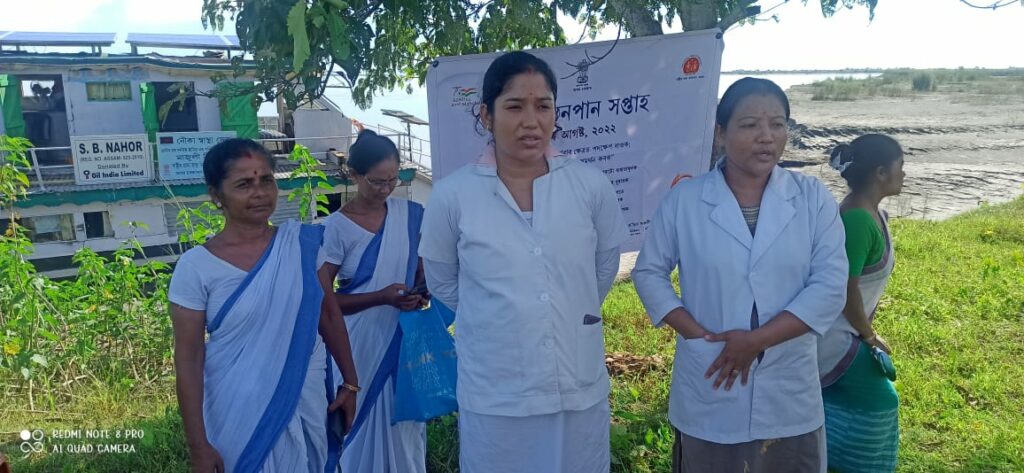
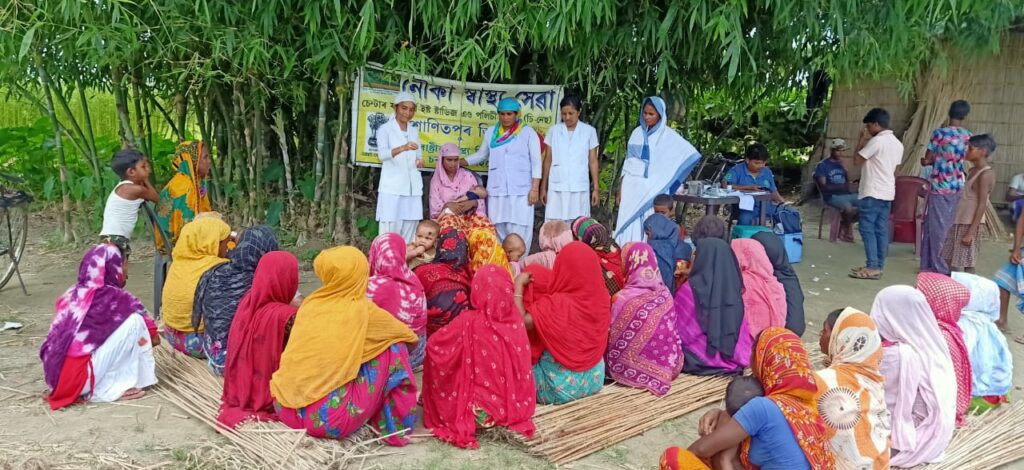
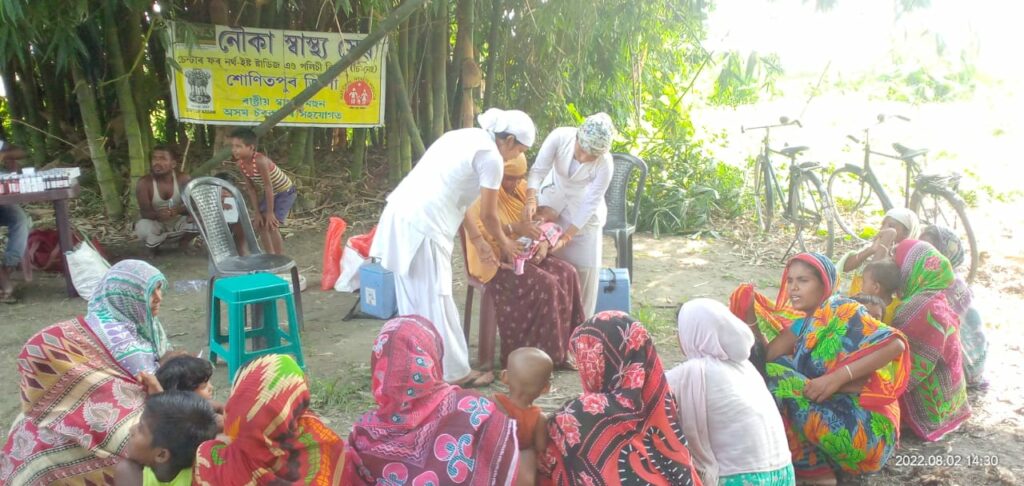
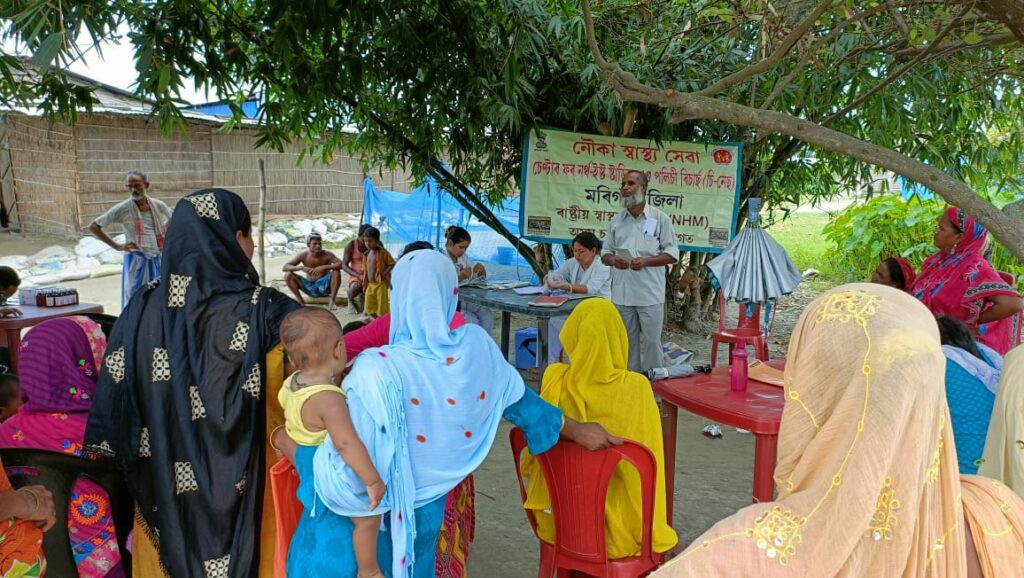



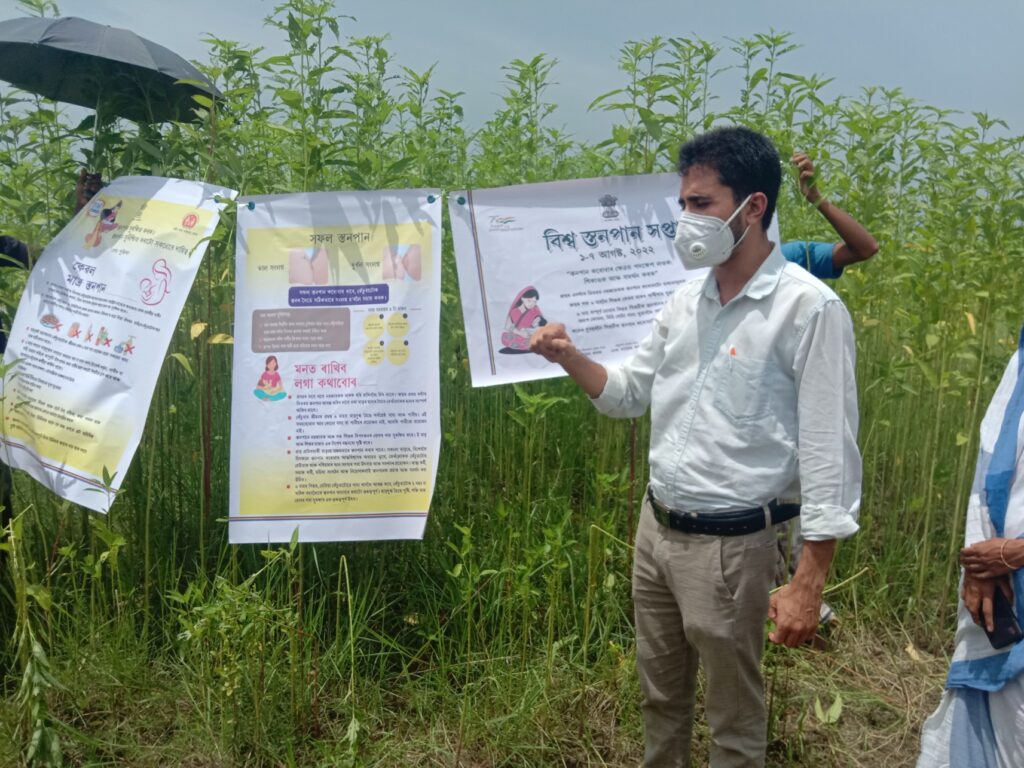

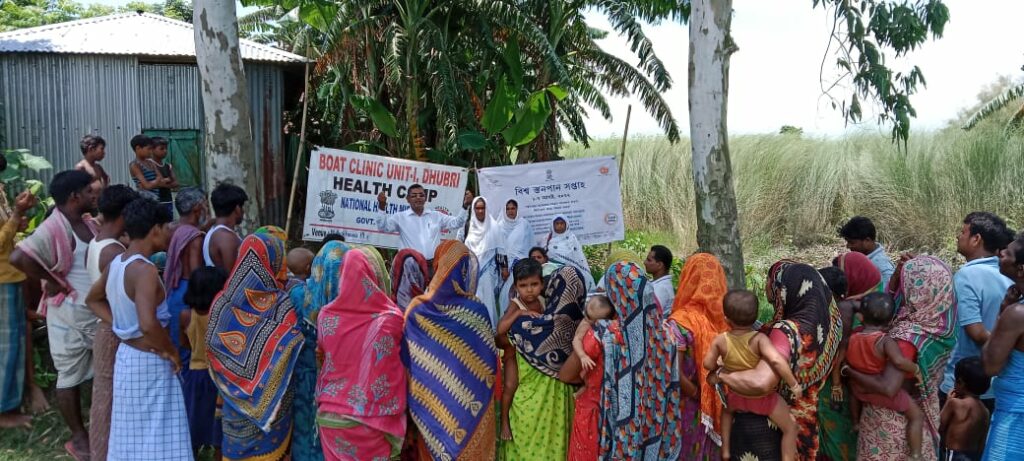

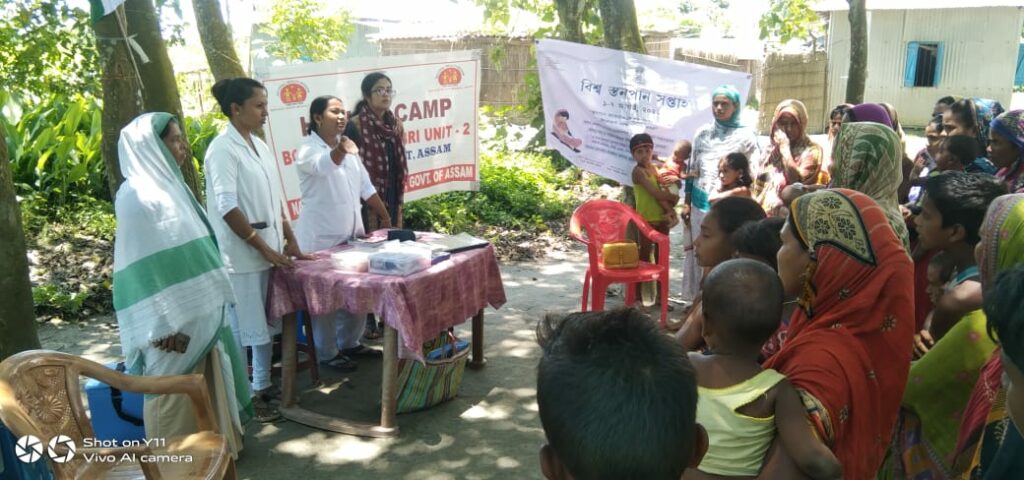
Annually, WABA coordinates and organises the World Breastfeeding Week (WBW) between Aug 1-7. Since 2016,WABA has aligned the WBW campaign to United Nation’s Sustainable Development Goals (SDGs).
Like previous years, this year too Boat Clinics in association with the District Health Society observed the World Breast Feeding Week from 1st to 7th Aug’22. The theme for the year 2022 being “Stepping up breastfeeding education and support”in the different island villages. As many as 40 awareness sessions were conducted by the 13 BC units during the period where 220 Pregnant Women and 383 lactating mothers were reached by the team along with 1,675 other village women. The Association for Promotion of Child Nutrition (APCN) has been partnering with the Boat Clinics since 2016 to perform the aforesaid activities to make people better aware about the importance of exclusive breastfeeding in the first six months for a baby in the riverine (char) areas.
Continuous awareness generation sessions by the boat clinic teams in each district has brought about a mind set change in these insular island dwellers and a palpable change has been observed. Breast feeding demonstrations are given by nurses explaining the step by step procedure among pregnant women and lactating mothers. Glimpses from the WBW in the boat clinic districts follow.
Visitors
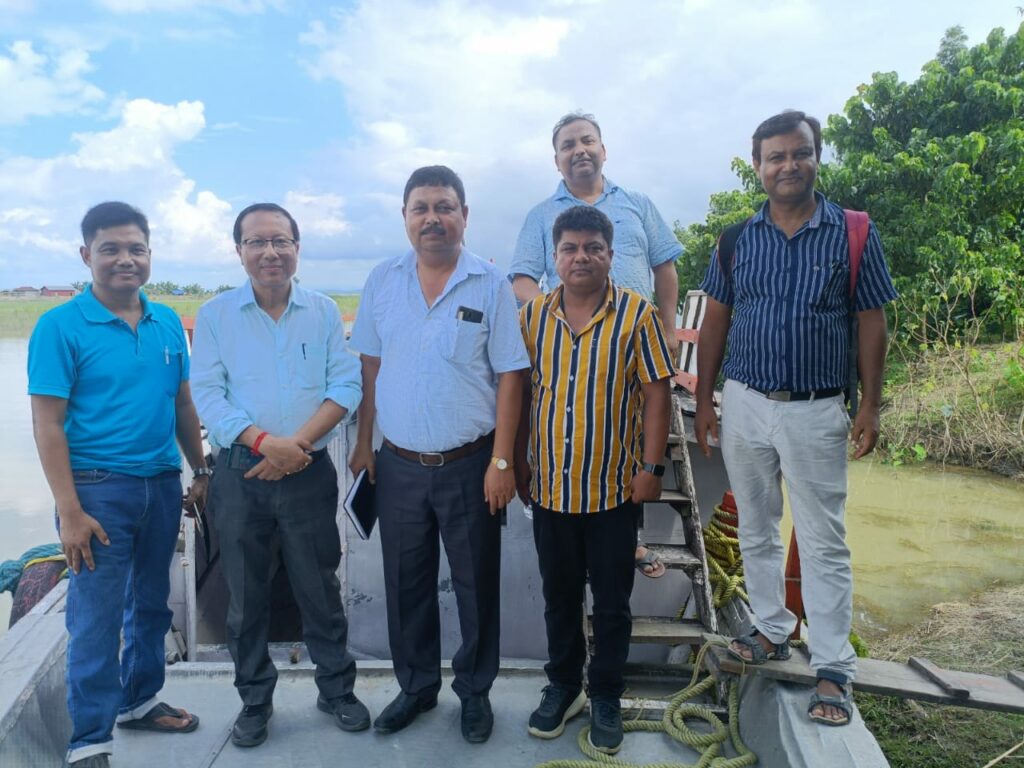
State Planning Consultant, Nilim Borah, Consultant, Dr Dhurba Rajbongshi, NHM Assam DPM, Sonaton Ishwary, and DCM Arif Ahmed, NHM Dhubri, were present at a camp conducted by the Dhubri Boat Clinic I team. The camp conducted on 1st July 2022 was held at the Chalakura pt-3 island village. The visitors seen with DPO, Mehebub Alom Hazarika onboard.
JSSM team visit
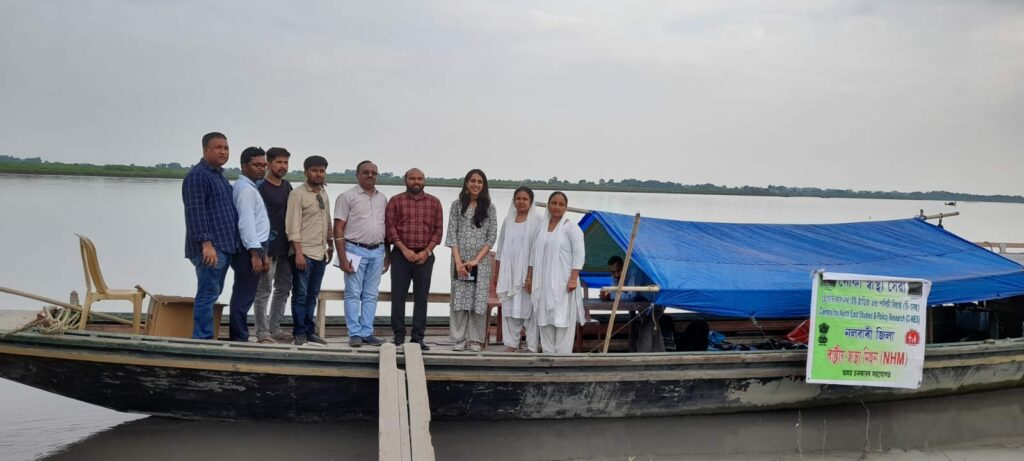
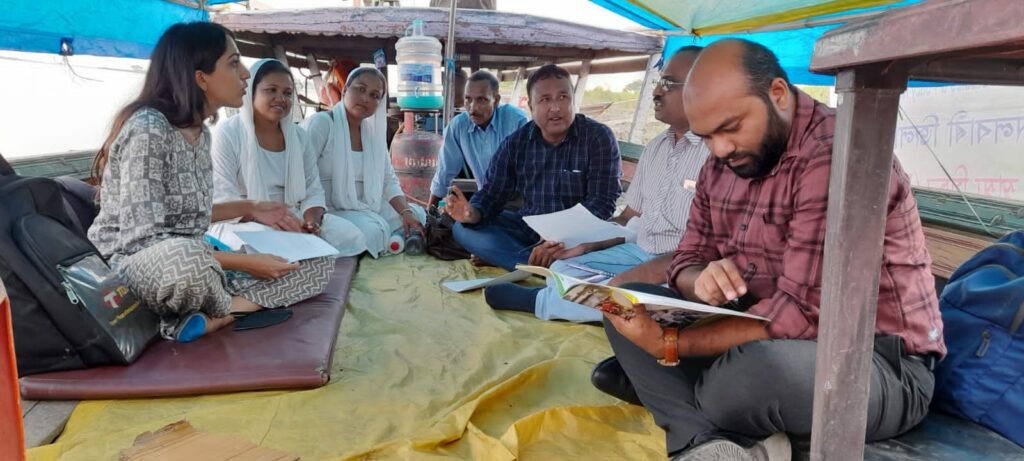
The Joint Supportive Supervision Mission (JSSM) Team from Central TB Division (CTD) Ministry of Health & Family Welfare (MoH&FW) led by Dr Uma Shankar- JSSM team lead, Central TB Division, NTT Bengaluru visited the Nalbari Boat Clinic unit on 27th July 2022 and held a meeting with Boat Clinic team at Mukalmua Ghat said Dr Shankar, “The primary health care services provided by the team in boat clinics is highly appreciated. They reach out to the unreached living in the islands and are the only source of primary health care for the island dwellers. May extend TB services like sputum collection and transportation, ATT distribution and home visit and counselling of TB affected families”
Added Ananya Singh, a member of the visiting team,“The services – regular and relief provided by the boat clinic is brilliant. The team has set an example for the rest of the country and the world. Team should provide TB services as part of their checklist.” Glimpses of the visitors with the team and at the health cum immunization session at Barballa II.
DIO visits Goalpara boat Clinic
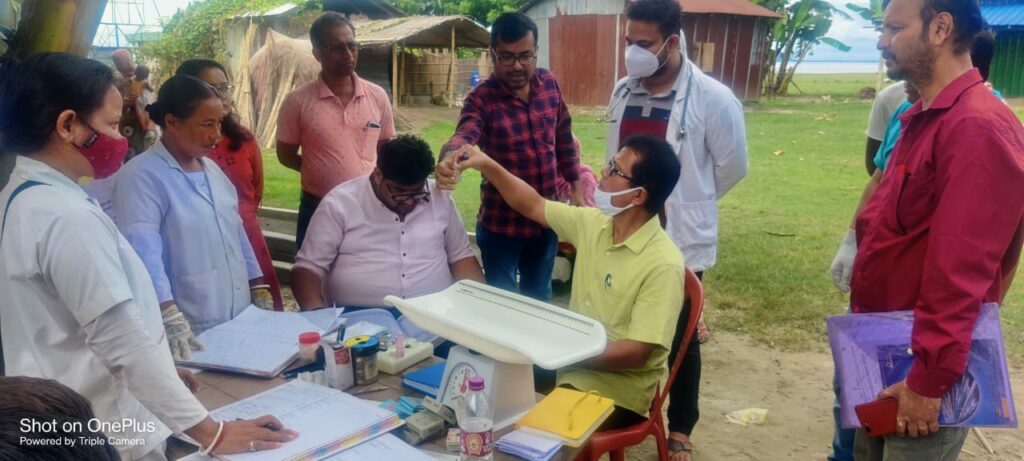
The District Immunization Officer of Goalpara district, Dr P K Bharali and UNICEF consultant Dr Vivek Gupta accompanied the Goalpara Boat Clinic to a health camp on 15th September 2022. The visitors monitored the RI session at Thailapara Char. An awareness session on food and nutrition was also conducted at the camp as part of the ongoing POSHAN (nutrition) month.
Zonal Head, Hindustan Coca Cola visits Boat Clinic
Mukund Trivedy,Zonal Head, Stakeholder Engagement, North East Region, visited the Morigaon Boat Clinic on 19th July 2022. Follows a piece from his blog on the experience:
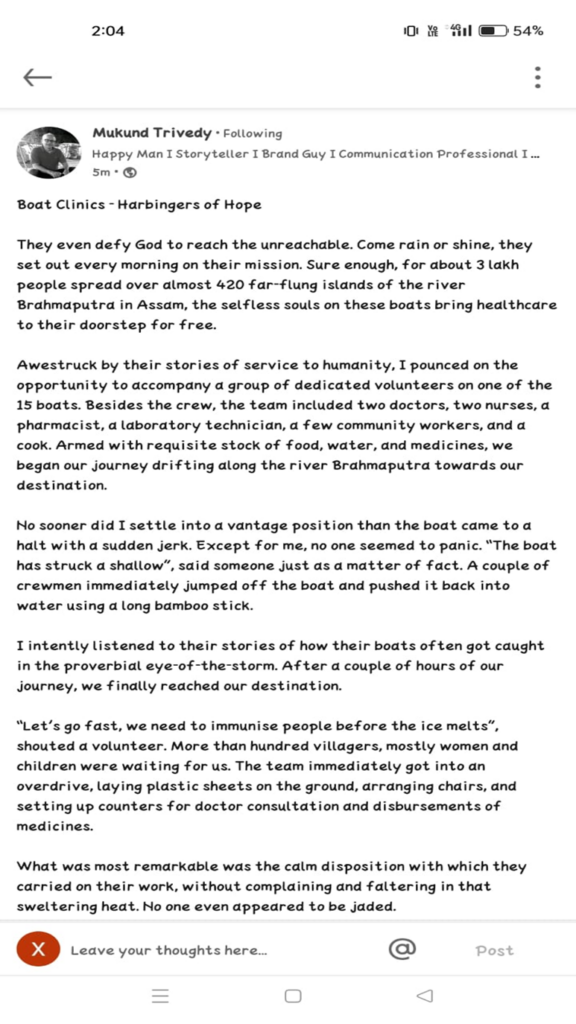
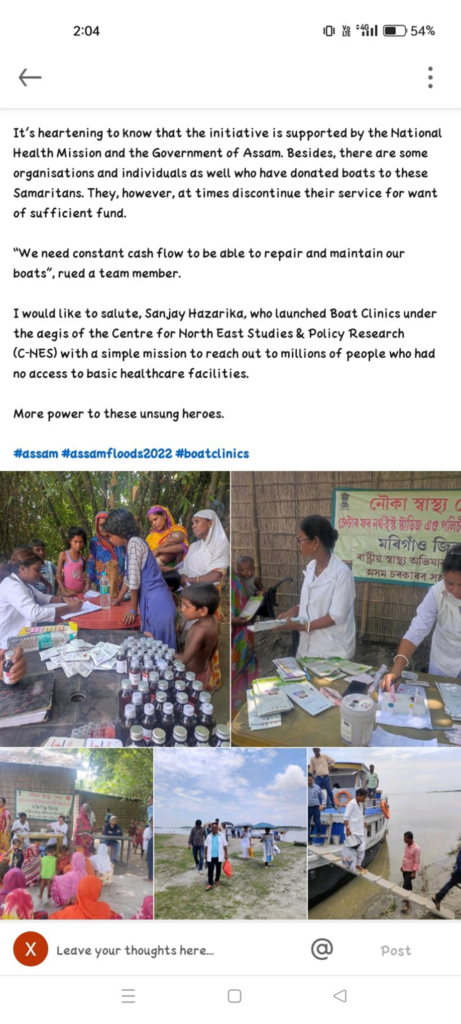
C-NES Participation

World Resources Institute (WRI) India in collaboration with AEDA launched the Energy Access Explorer(EAE) platform for Assam on 31st August 2022.Along with the launch there were presentations on the importance of an integrated, inclusive, data-driven approach to energy planning. Assistant Programme Manager C-NES Mousumi Dowerah and Programme Coordinator, Saif Sheikh participated at the event.
EAE platform provides a unique opportunity to visualize the energy, health, education and livelihood indicators and will aid in decision-making processes for the accelerated development of the state. The launch laid the foundation stone for inter-sectoral and inter-agency conversations on developing an integrated approach to improve the developmental indicators so the state can reach its full potential. The event was preceded by a closed door hands-on training on EAE. The launch event and training were attended by various organizations besides C-NES such as Assam State Space Application Center, Assam Climate Change Society, APDCL and ICCO.
Felicitation for C-NES staff

The District Programme Officer of Nalbari Boat Clinic, Parvis Ahmed recognized as the best employee of Nalbari district being felicitated by the Health Minister of Assam Keshab Mahanta on 27th September at Assam Administrative Staff College, Guwahati.
From the Field:

Flood camp at Bhalakhati and Kaplabori, Boat Clinic, Nalbari on 2nd July 2022

Flood camp at Bhalakhati and Kaplabori, Boat Clinic, Nalbari on 2nd July 2022
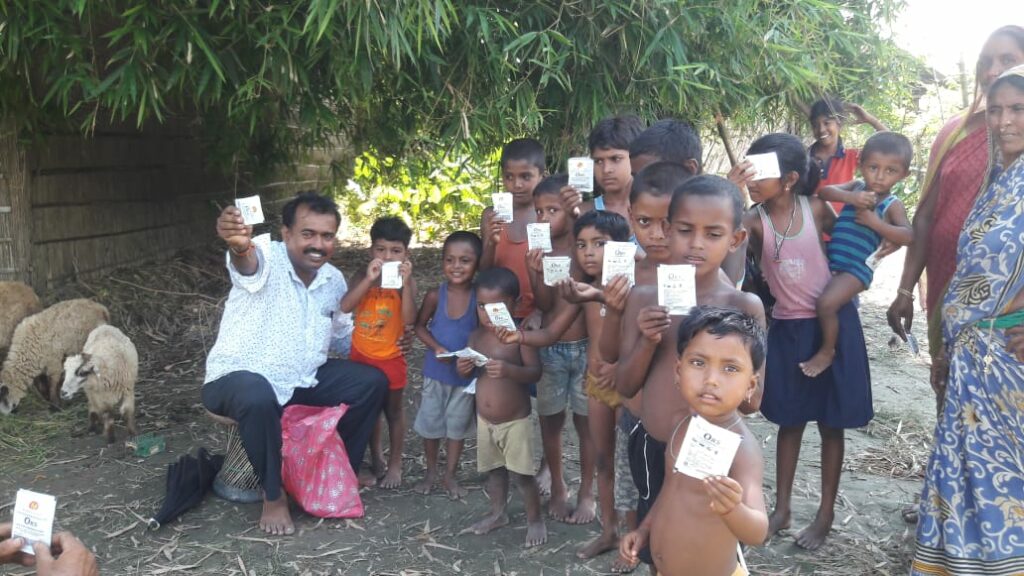
The Bongaiagon Boat Clinic distributing ORS after conducting an awareness session on prevention of diarrhea at Satsobigha Char on 4th July 2022.



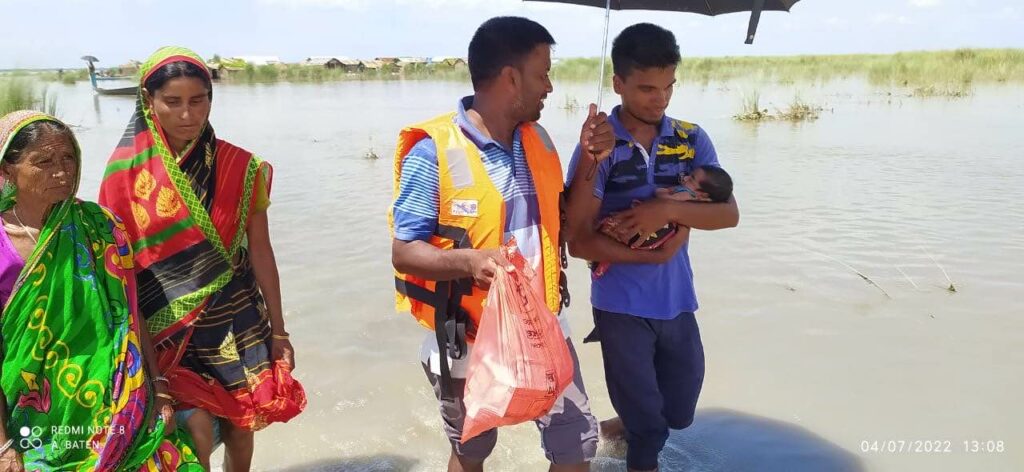
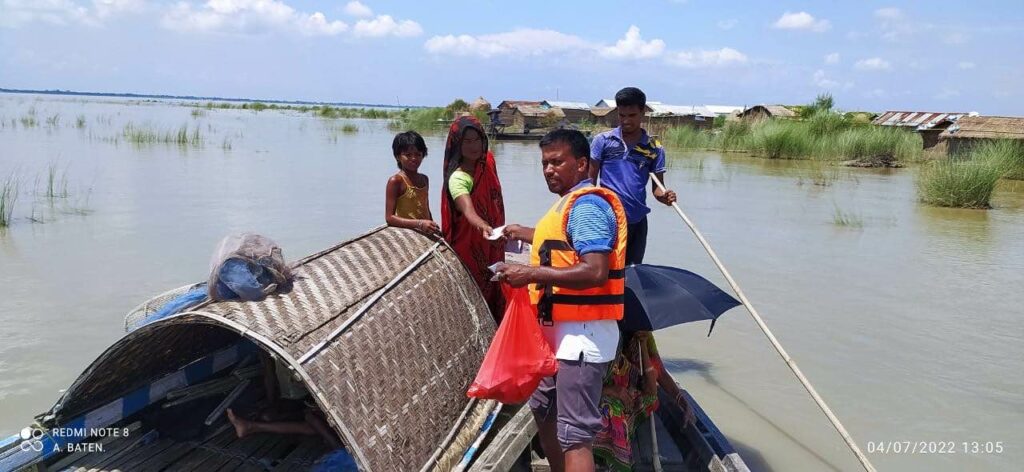
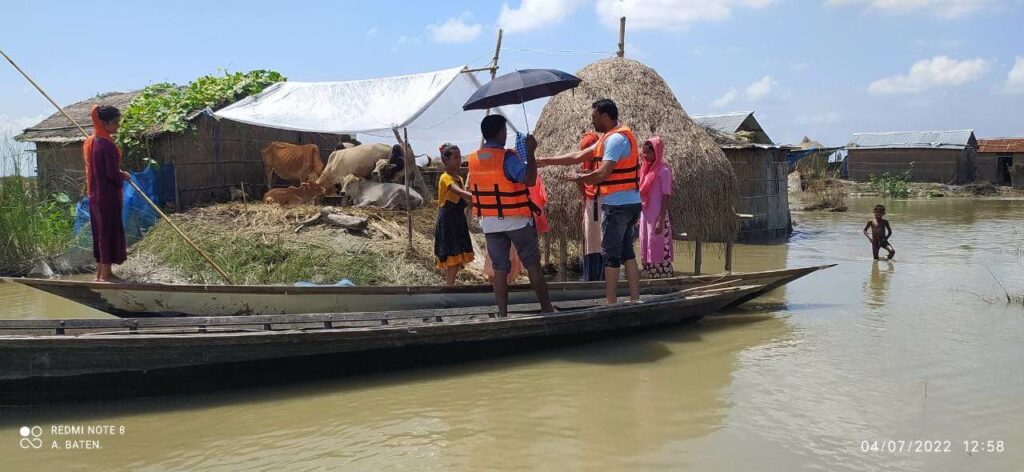
Health camp and helping beneficiaries in distress in their flooded villages,Salmara and Poruwa by the Barpeta unit I team on July 4th 2022.

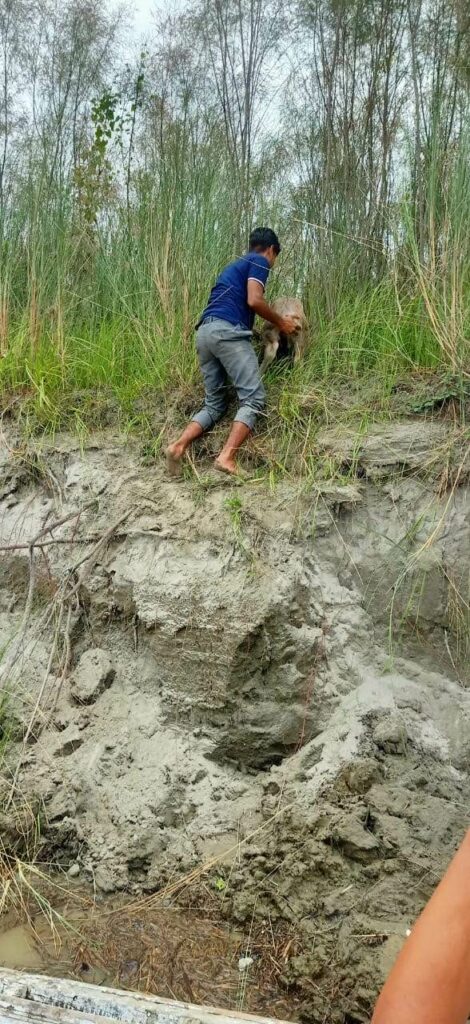
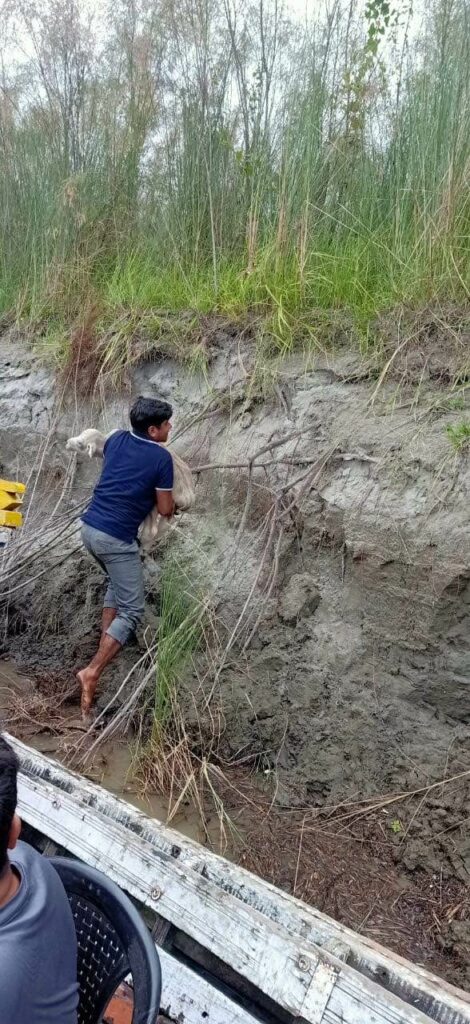
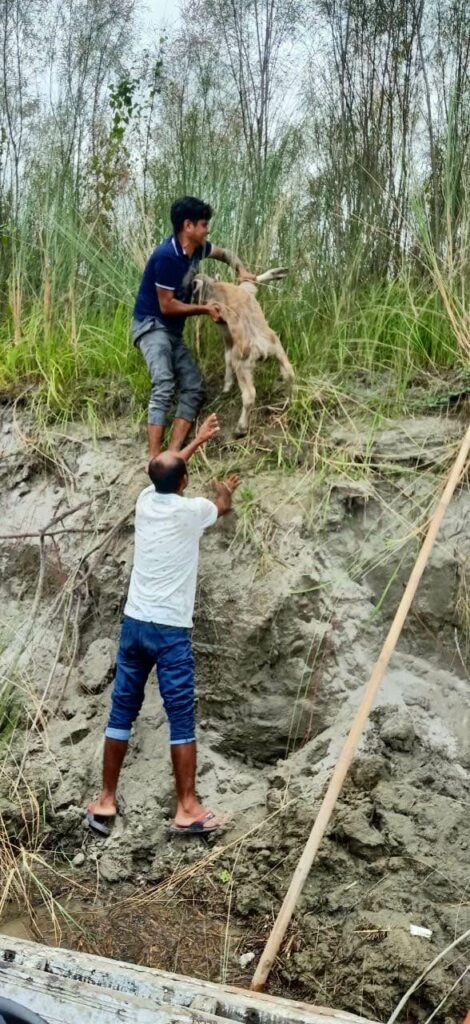
The Sonitpur Boat clinic team saves a new born calf from falling into river near Thengbhanga Char– going beyond the call of duty and treating only human patients- 31st August 2022- 3pm.
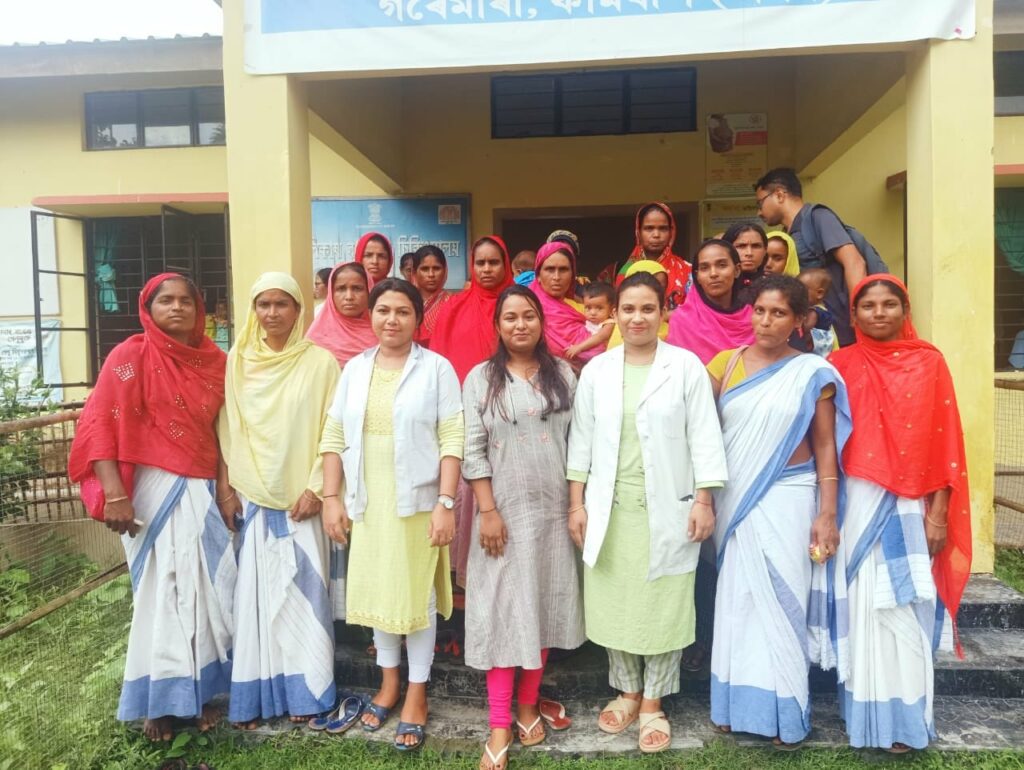
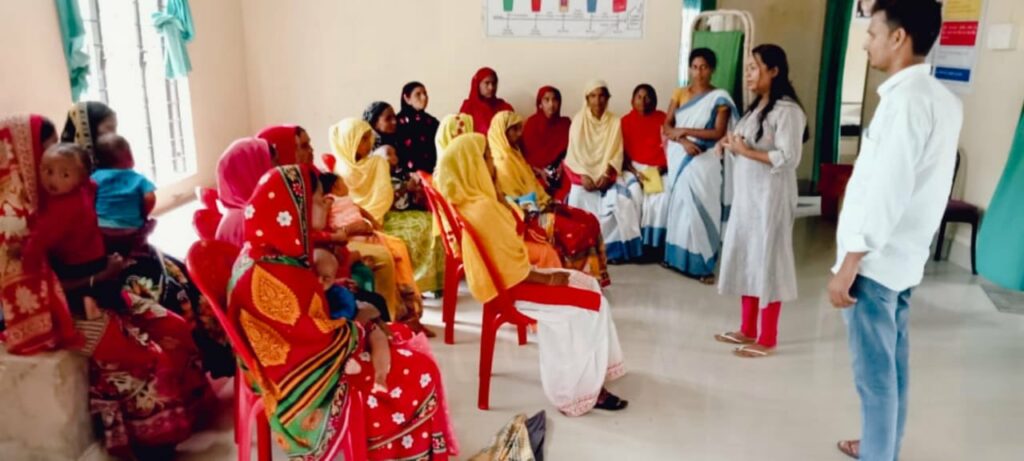
Kamrup Boat Clinic engaging in a Family Planning Awareness camp promoting IUCD as contraceptive device on 6th August 2022. Regular awareness sessions are held on various relevant issues in all 15 BC units.
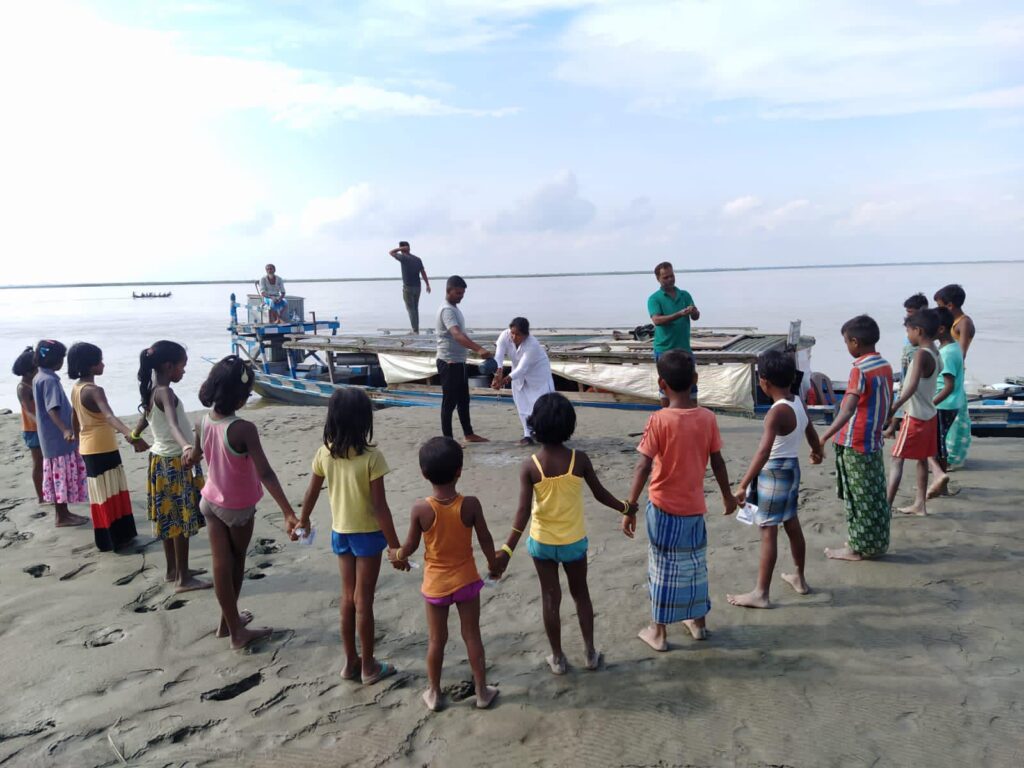
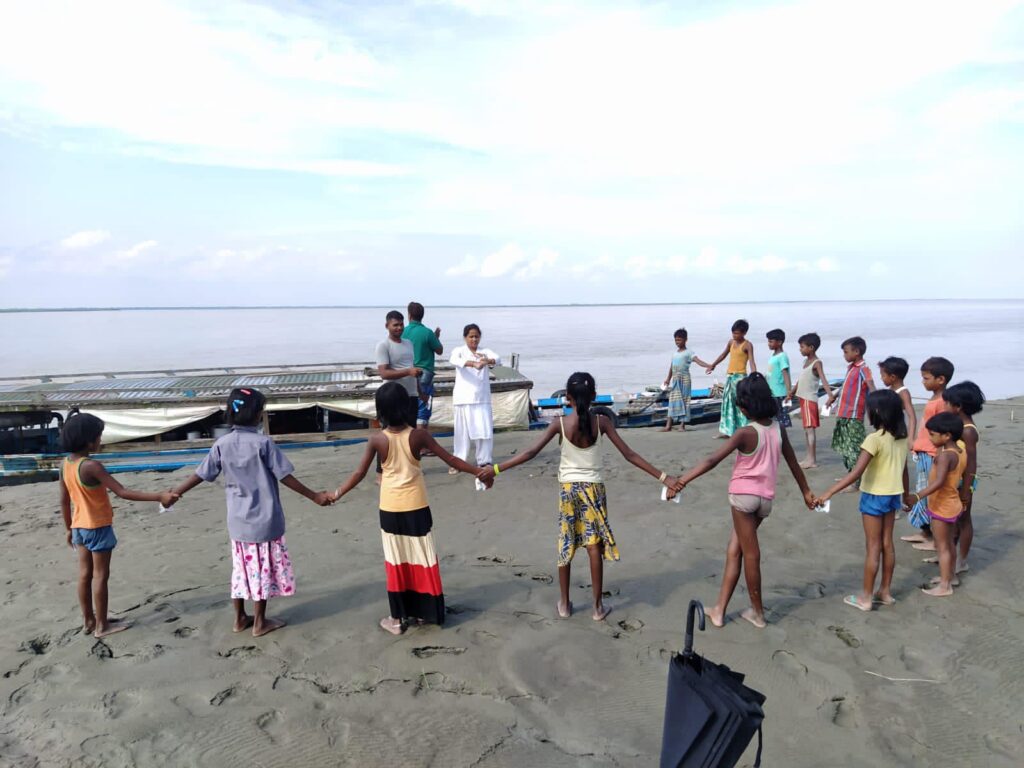

Media on Boat Clinics:
Bridging the Healthcare Divide on the Brahmaputra with Boat Clinics
By Arunima Rajan
How an innovative boat clinic programme is bringing health care services to underserved riverine communities in Assam.
The islands along the Brahmaputra River are known as ‘chars’ and ‘saporis’. Beautiful and remote, they are hard to access, a problem compounded by annual flooding in this part of the North East. This poses problems for the inhabitants of these islands – who make up 10% of Assam’s population – when it comes to accessing healthcare. In most parts of India, we’re used to quick, convenient road access to medical care. The islanders of the Brahmaputra have to depend on unreliable boat services, taking them through choppy waters to distant hospitals on the mainland. Fortunately, an innovative program using boat clinics and community workers is changing how these remote communities access healthcare.
Annual flooding places tribal communities at risk
Assam is located in the northeast region of India. The Brahmaputra River, the longest river in Asia, flows through the state. The river is navigable for large boats for about 6 months of the year and is prone to flooding during the rainy season. Flooding causes extensive damage to crops and livestock.
Disruptive Healthcare Innovation using community workers and boat clinics
The eminent author, filmmaker and journalist Sanjoy Hazarika conceptualised the innovative rural healthcare programme called the Boat Clinic, which has taken shape into an established, successful programme today.
In 2004, C-NES was selected as one of the 20 finalists in the World Bank’s India development marketplace competition in New Delhi. C-NES’ design was lauded by the judges for its innovative approach to solving problems in rural areas, and C-NES received a cash prize of $20,000. The prize money enabled the building of the first boat clinic, which was designed by MIT’s design team, local boat builders and local river surveyors. The vessel was named Akha (Asha), meaning hope in Assamese.
“Soon after the boat clinic programme first took off in May 2005, UNICEF came forward to support the Dibrugarh health outreach initiative in July 2006 with an emphasis on improving immunisation coverage of children and pregnant women. Health care delivery system on curative and preventive care was also streamlined. UNICEF is not directly involved with the Boat Clinics which is totally supported by National Health Mission, Assam under the Public Private Partnership mode,” says Sanjoy Hazarika.
Assam Government and UNICEF: collaborating to bring healthcare to remote communities in the North East
UNICEF India had already been working in the state since 2006, providing basic health care to children under five years old. The government of Assam wanted to expand access to healthcare to all citizens. A unique Private Public Partnership (PPP) agreement was signed by NHM and the Government of Assam in February 2008.
C-NES has a team of doctors, nurses, pharmacists and lab technicians to run its operations. Boat clinics visit different riverine communities on a regular schedule. During their stay, they share information about prevention of diseases, and healthy habits, and provide curative support if required. The COVID-19 pandemic is no exception. Boat clinic members shared information about COVID-19 focusing on hand washing, social distancing, cough etiquette, hygiene etc. Information about the next scheduled visit is shared with residents prior to the clinic moving to the next location and in an emergency, C-NES provides transport to the nearest district hospital
Boat clinics operate on two systems. In units where specially designed boats like Akha models are present, the teams travel on trips of 4-6 days (including night halts) at a stretch, conducting one or two camps per day. Where larger boats are not available, country boats are hired and adapted to provide the basic provisions, including an OPD and cabin for ANC check-ups.
Focus Areas of the Boat Clinic
C-NES and NHM have recruited both technical and non-technical staff to work on the project. Each district will have a total of 15 team member including one District Programme Organiser (DCO), two Medical Officers (MOs), one General Nurse Midwife (GNM), one Pharmacist, one Lab Technician, two Auxiliary NurseMidwives (ANMs), three Community Workers (CWs) and four Boat Crew Members (BCMs). There will also be a staff of nearly 200 people including doctors, nurses, lab techs, pharmacists and coordinators who work directly with district and state administration and nearly 3 lakh people are treated every single year.
“Boat clinics established by NHM Assam with technical support from UNICEF are stellar examples of contextually relevant health innovation addressing an unmet need in the community. These boat clinics have also been vehicles of transformation. Natural calamities such as floods disrupt routine health services delivery and the vulnerable populations are most affected by such disruptions. NHM has mostly used it for RMNCH and routine immunization. It definitely can be used for all essential health services, there is scope for incorporating NCD services to ensure continuum of care,” says Oommen John from the George Institute of Health.
Kerala Model
Kerala has had a long history of using medicine boats. These boats were first introduced in the 1980s and were in vogue until 2017. Lourdes hospital, a medical institution based out of Ernakulam, has relaunched the services for the residents of Thanthonni Thuruth.
SIMILAR MODELS
- https://impactnorway.org/en/floating-clinics-in-cambodia-the-lake-clinic/
- https://rimba-raya.com/Initiatives/floating-clinic/
- https://www.ips-intermedical.de/index.php?option=com_content&view=category&layout=theme1703:category&id=57&Itemid=304
- https://www.worlddiabetesfoundation.org/news/india-floating-clinic-brings-needed-care
- https://www.fiji.gov.fj/Media-Centre/News/FLOATING-CLINIC-TO-SERVICE-LAU-GROUP
- http://homoeopathy.kerala.gov.in/2019/01/22/floating-homoeo-dispensary/
Was Hazarika inspired by any of these models? “As I child, I remember reading about a hospital ship which worked, I think it was in Africa. The Boat Clinics were inspired by a life changing experience while making a documentary on the Brahmaputra with the renowned filmmaker Jahnu Baruah. While in Majuli (the largest river island in the world), I was moved by learning of an incident where a young pregnant woman died because she could not travel to the mainland hospital on the other bank on time. As I researched the issue of the high maternal mortality rate in Assam, at that time the highest in the country, it struck me that the only effective way of taking health care and other services on a sustained basis to the islands was by boats. That’s how the boat clinic idea began and grew. At flood time, it takes health care right to people’s homes. That way, a major gap is met with the partnership of the National Health Mission – without which this could not have worked because you need the involvement of the stakeholder, that gives a programme sustainability, inclusivity, reach and financial support. The State has the capacity to cover the last mile. It is our job as informed citizens to enable it to do just that,” he explains.
Measuring an Innovation
How effective is the programme? A study conducted by the Regional Resource Centre for North Eastern States (RRC-NEE) in 2013 found that the frequency of coverage of particular areas varied from 6-24 times in a year.
Here’s a link to the study: http://www.rrcnes.gov.in/study_report/Boat%20Clinic%20Evaluation,%20Assam%202013.pdf
Performance of Boat Clinics
Source: https://nhm.assam.gov.in/schemes/boat-clinic
The success of the Boat Clinics bodes well for the future of healthcare among island communities in Assam and the North East. It is also a realisation of the ideals of the Twelfth Five Year plan, which set forth the goal of universal health cover and high standards of care.Having negotiated the turbulent waters of the COVID-19 pandemic successfully, the Boat Clinics of Assam are a positive test case in the power of innovative, locale-specific programs to improve outcomes for previously underserved communities.
Source: https://www.healthcareexecutive.in/blog/boat-clinics?
Project on Covid 19 Vaccination for Adolescents in the river islands

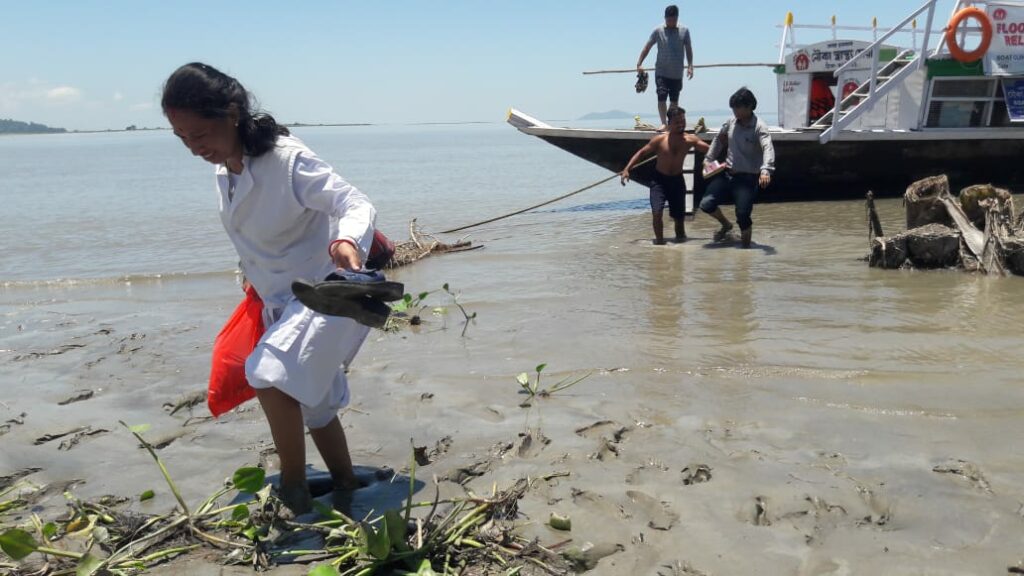


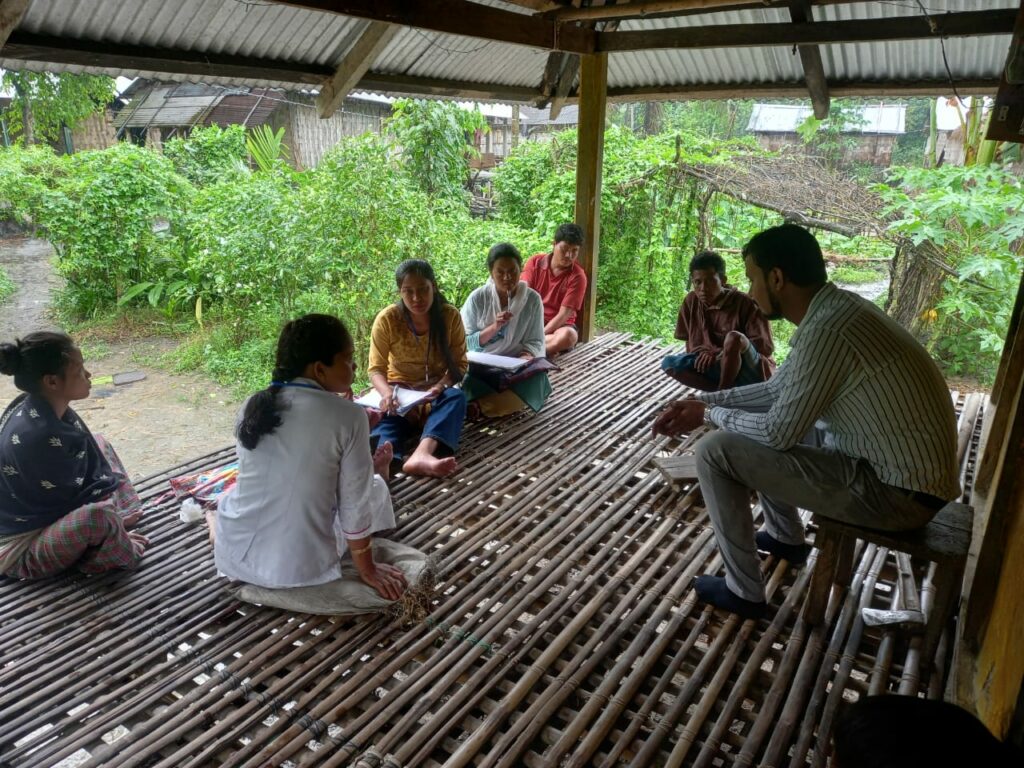
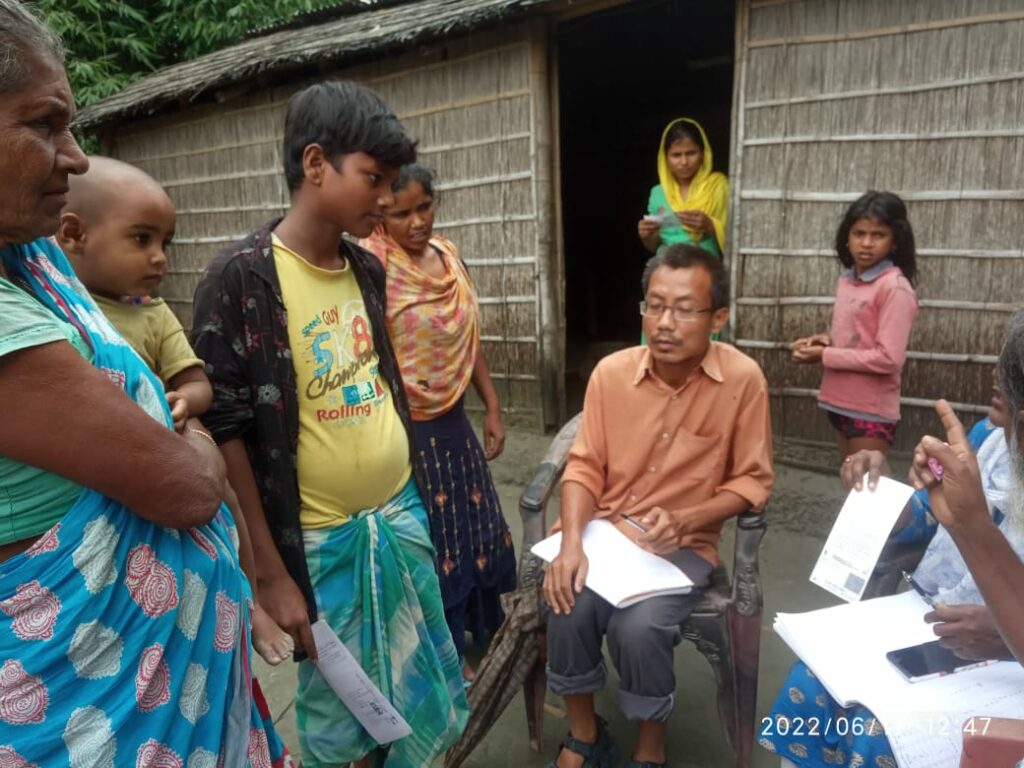
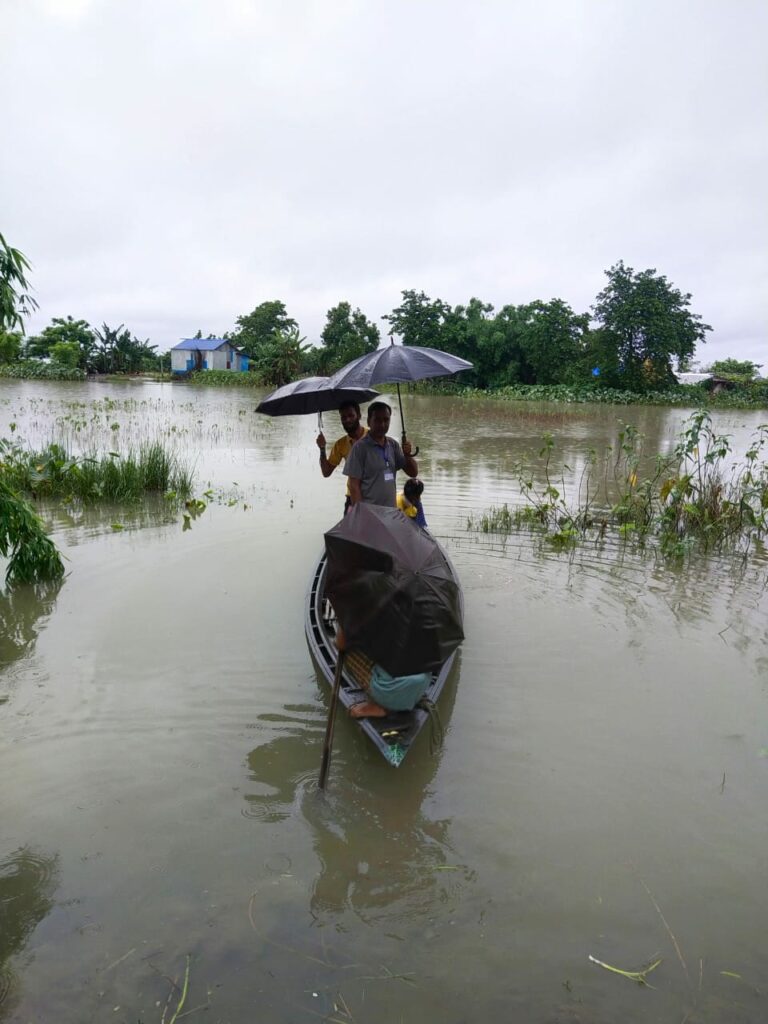
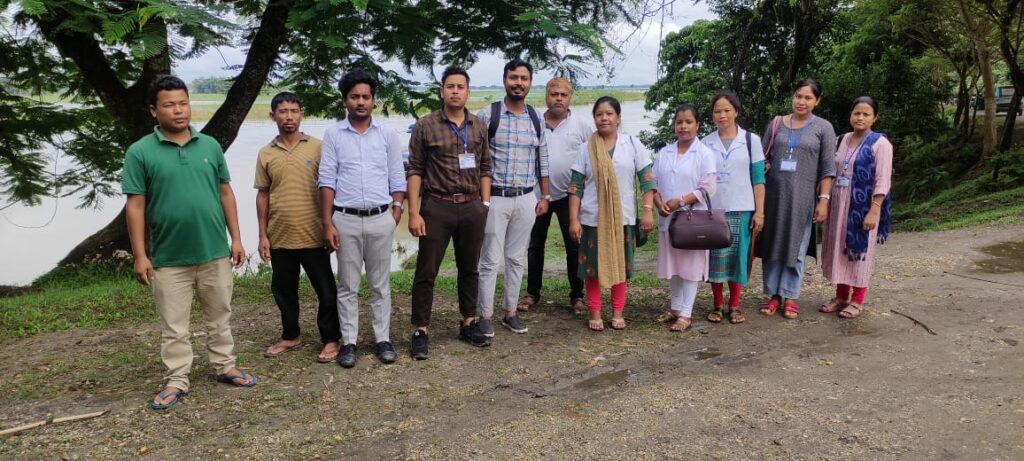
From March 2022, C-NES, supported by Dasra has been working for a project on vaccination of adolescent age group (12-18 years) in island villages of selected districts – Barpeta, Lakhimpur and Morigaon. Field studies undertaken underlined that these districts had the lowest vaccination coverage within the boat clinic covered districts. It is imperative, to further achieve the immunization target in these difficult to access areas, to prioritize vaccine accessibility for the adolescent population. C-NES has been enabling the availability of Covid-19 vaccines in these remote and difficult riverine/char areas in the three target districts though the boat clinic network- specifically for the adolescent age group (age 12-18 years) for this project. Information about the virus and the vaccine was disseminated among the target population as also the drawbacks of not taking the vaccine besides the health aspect, namely, disqualification from availing certain government schemes, inability to enter places without a vaccine certificate. Activities undertaken in the project include insight gathering: baseline survey and identification of key barriers to vaccination, training, communication and dissemination of information among target group, last mile delivery of vaccines, data entry, receiving feedback from the beneficiaries. The project is expected to increase awareness and health seeking behaviour among the adolescent population on Covid-19. House to house visit is being carried out in case of hesitancy to accept the vaccine. The boat clinic community workers and staff from the four BC units have been assisting and guiding the project implementation staff .7299 households were surveyed, 4600 adolescents (target beneficiary) out of the surveyed were identified as either partially vaccinated/unvaccinated. 2092 adolescents vaccinated till 30.09.2022. The communication and dissemination has been largely conducted by mobilized community volunteers. C- NES has liaised with 249 external stakeholders including district administration officers, ASHA workers to execute this project.